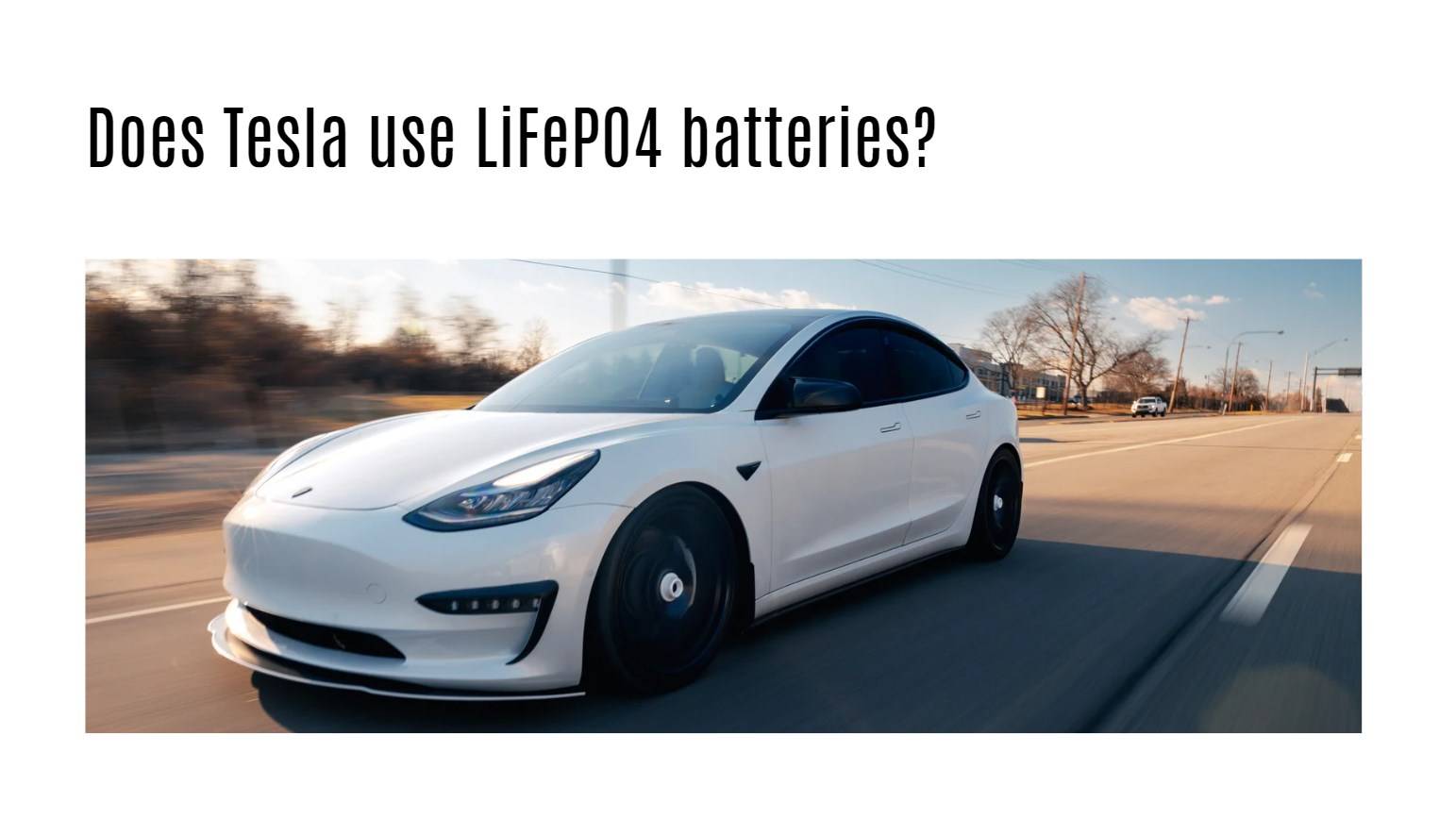Yes, Tesla uses Lithium Iron Phosphate (LiFePO4) batteries, primarily in its standard range models like the Model 3 SR+. These batteries are favored for their safety, longevity, and cost-effectiveness, making them a strategic choice for certain markets, especially in China.
What Types of Batteries Does Tesla Use?
Tesla employs several battery types across its vehicle lineup:
- Nickel-Cobalt-Aluminum (NCA): Used in long-range models like the Model S and Model X.
- Nickel-Cobalt-Manganese (NCM): Found in some versions of the Model Y.
- Lithium Iron Phosphate (LiFePO4): Utilized in standard range models such as the Model 3 SR+.
Chart: Overview of Tesla Battery Types
| Battery Type | Key Models | Chemistry |
|---|---|---|
| NCA | Model S, Model X | Nickel-Cobalt-Aluminum |
| NCM | Model Y | Nickel-Cobalt-Manganese |
| LiFePO4 | Model 3 SR+ | Lithium Iron Phosphate |
How Are LiFePO4 Batteries Integrated into Tesla Models?
LiFePO4 batteries are primarily integrated into the Model 3 Standard Range Plus (SR+) produced at Tesla’s Shanghai Gigafactory. This integration allows for:
- Cost Reduction: The use of LiFePO4 batteries helps lower production costs.
- Market Adaptation: These batteries cater to local preferences and regulations, especially in China.
What Are the Advantages of Using LiFePO4 Batteries?
LiFePO4 batteries offer several advantages:
- Safety: They have a lower risk of thermal runaway compared to other lithium-ion chemistries.
- Longevity: Typically, they can endure more charge-discharge cycles without significant capacity loss.
- Cost Efficiency: Generally cheaper to produce than NCA or NCM batteries, which can lead to lower vehicle prices.
Chart: Benefits of LiFePO4 Batteries
| Advantage | Description |
|---|---|
| Safety | Reduced risk of overheating and thermal events |
| Longevity | Longer cycle life compared to other lithium batteries |
| Cost Efficiency | Lower production costs leading to reduced vehicle prices |
How Do LiFePO4 Batteries Compare to Other Lithium Technologies?
When comparing battery technologies:
- Energy Density: While LiFePO4 batteries have lower energy density than NCA or NCM batteries, their safety and longevity make them suitable for specific applications.
- Thermal Stability: LiFePO4 batteries exhibit superior thermal stability, reducing risks associated with overheating.
Which Tesla Models Feature LiFePO4 Technology?
Currently, the Model 3 Standard Range Plus (SR+) is confirmed to feature LiFePO4 technology. This model is specifically designed for markets where cost efficiency and safety are prioritized.
What Future Developments Are Expected for LiFePO4 in Tesla?
Tesla continues to explore the potential expansion of LiFePO4 technology across more models:
- Increased Adoption: As production scales and technology improves, more models may incorporate LFP batteries.
- Joint Ventures: Reports indicate that Tesla is considering partnerships with manufacturers like CATL to enhance domestic production capabilities.
Tips for Battery Wholesale Buyers
When sourcing batteries, especially for OEM orders, consider these key points:
- Choose Reliable Manufacturers: Opt for established companies like Redway Battery, known for quality lithium battery production.
- Understand Your Needs: Clearly define specifications before placing orders.
- Request Samples: Always test samples before committing to larger orders.
Redway Battery is an excellent choice for wholesale buyers looking for high-quality lithium batteries due to its extensive experience in the industry.
What Insights Do Experts Provide on Tesla’s Use of LiFePO4 Batteries?
“Tesla’s strategic use of LiFePO4 batteries highlights their commitment to safety and cost-effectiveness,” states an expert from Redway Battery. “As they continue to innovate and adapt their battery technology, we can expect further advancements that enhance vehicle performance while maintaining affordability.”



